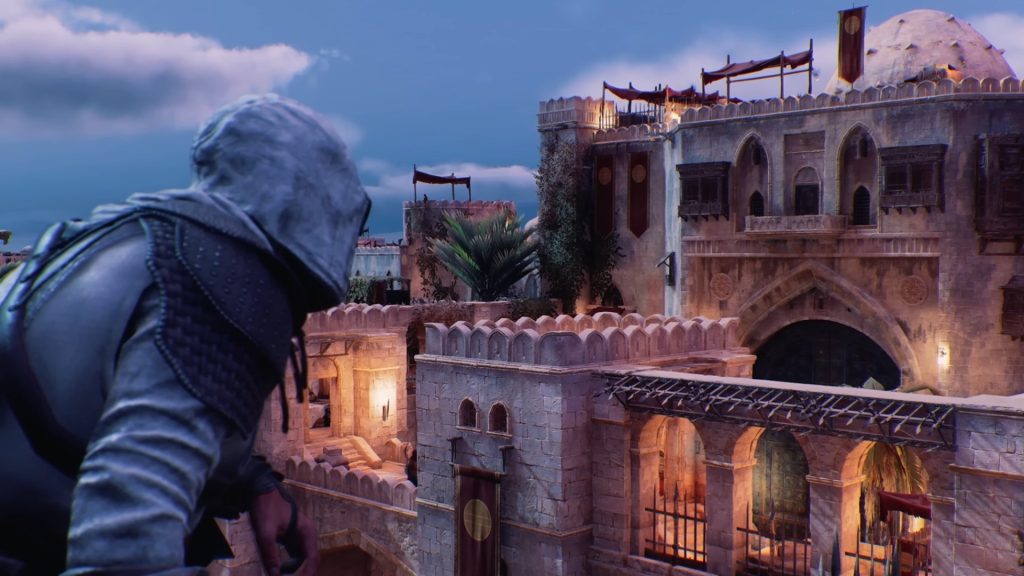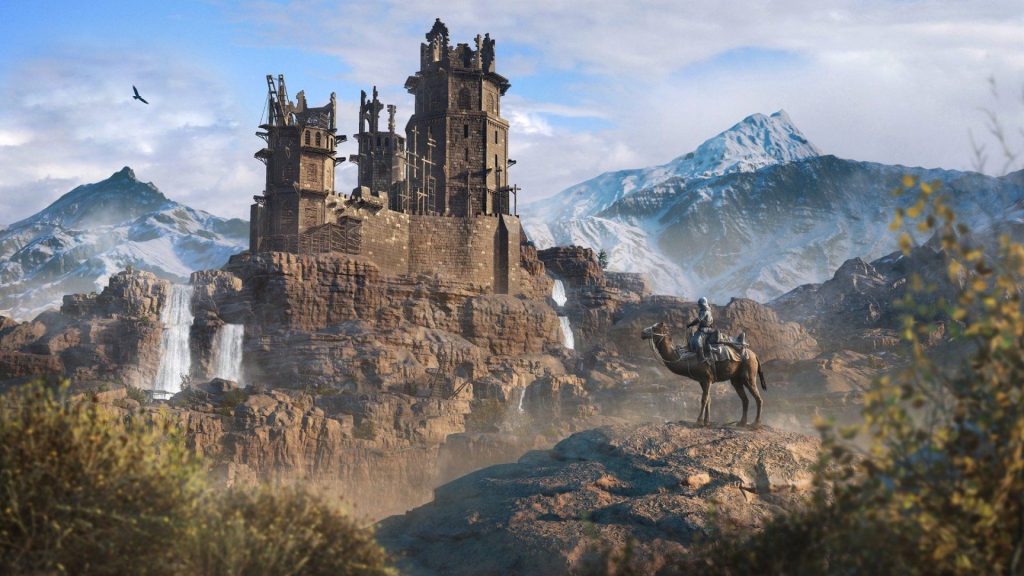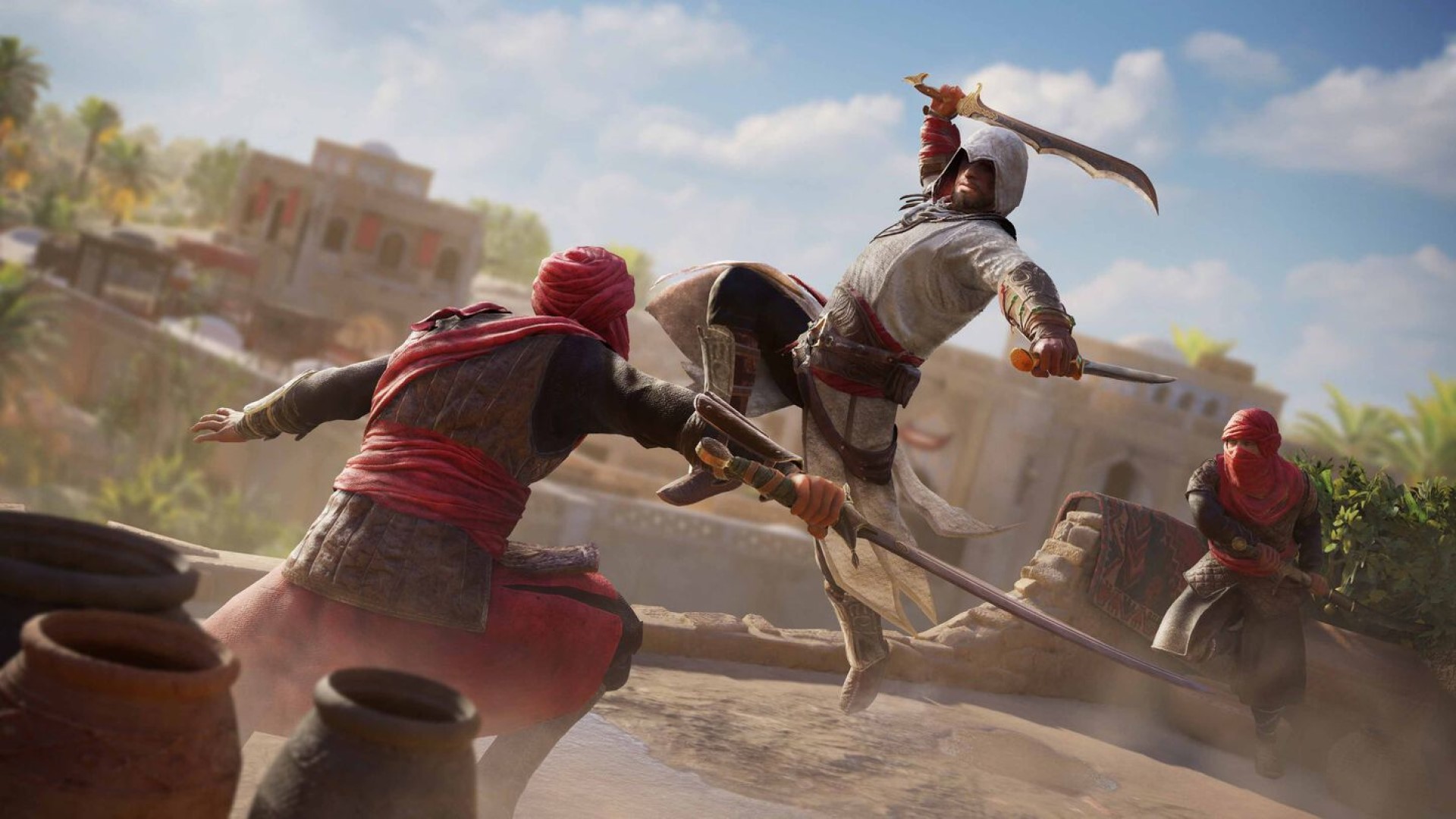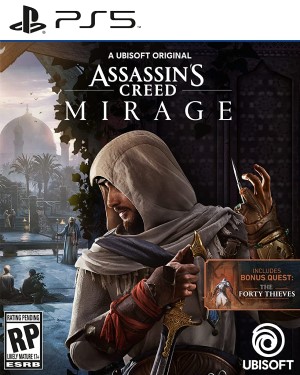
There was a time, long ago when a new Assassin’s Creed was a spectacular event. It happened after the release of Assassin’s Creed 2, which built upon the stealth playground of its predecessor to become one of the greatest games of all time. It was still apparent when Assassin’s Creed Brotherhood was released and offered an incredible experience with its new combat options, multiplayer and memorable campaign. Things began to fall off somewhat with Revelations and faltered outright when Assassin’s Creed 3 released due to its general lack of cohesion and bugs.
These two titles exemplified the weaknesses of the yearly sequel cycle, both in polish and potentially exhausting a player base. Assassin’s Creed 4: Black Flag brought things back on track by being completely unlike anything seen before with its setting.
However, Assassin’s Creed Unity fell off again due to numerous bugs and glitches. Assassin’s Creed Syndicate was there, and by that point, fans were ready for a refresh. Assassin’s Creed Origins debuted two years later, and the series has embraced The Witcher 3-like action RPG gameplay ever since.
Don’t get me wrong – a new Assassin’s Creed was still very much a big deal for many people. Look no further than Assassin’s Creed Valhalla, which crossed $1 billion in revenue in less than two years of release. However, much of the series’ magic felt like it had diminished over time. Maybe it was because the games had become bigger, evolving from stories into pieces of a never-ending mystery or platforms for live service with new “modes” and microtransactions.
Maybe it was that the “assassin” in Assassin’s Creed no longer really applied. It became more of a name than an identity for a series founded on stealth and assassinating targets using ingenuity and the environment.
Thankfully, Ubisoft is returning to those roots with Assassin’s Creed Mirage, ironically meant as an expansion for Valhalla before evolving into its own game. Many things will look unfamiliar to contemporary fans – it costs $50 and doesn’t feature an overwhelmingly large map with multiple regions to explore. There are no loot boxes, and it’s about 15 to 20 hours (with playtests estimating about 25 to 30 hours for a completionist run).

Most importantly, there are no plans for DLC or extensive post-launch support per creative director Stephane Boudon. Even if it’s the origin story of Basim Ibn Ishaq, a key figure in Valhalla, Mirage aims to tell a complete story, even if it makes up an overall larger narrative.
To say that all of this is a breath of fresh air would be an understatement. It’s not because we don’t appreciate big games that provide dozens of hours of entertainment, but modern-day Assassin’s Creed – and Ubisoft in general – was becoming dangerously bloated. An experience like this that can be completed over a week, emphasizing quality over quantity, is appreciated.
None of that would mean anything if the gameplay wasn’t something you wanted to experience. For Assassin’s Creed fans, Mirage is a return to what made the series tick. Set in 9th-century Baghdad with four districts to explore (a throwback to the first game, which similarly focused on a single, dense location), you follow Basim from his beginnings as a street thief to becoming a member of the Hidden Ones. Combat is close-quarters, but it’s less over-the-top and smash mouth than Valhalla or Odyssey. Stealth is still very much the play here, especially when completing objectives.
When completing a mission, you’re not just beelining it to the target and killing everything in your path. First, you need to gather information about them, completing different tasks and gathering clues before zeroing in on their locations. Being an assassin also means not being able to soak up a lot of damage (crazy, I know), and while parrying attacks and countering with killing blows is an option, it’s best not to let enemies overwhelm you.

Sneaking and investigating the area for opportunities is the key to success. Blend into crowds, pickpocket enemies, throw smoke bombs and swoop in for assassinations – the choice is yours. Thanks to the new Assassin Focus, you can take down several enemies immediately, but only if you remain undetected (somewhat similar to the Mark and Execute feature from Splinter Cell Conviction back in the day). It requires assassinations to recharge, further incentivizing stealth. Combat, as in the older games, is an alternative means to defend yourself, but it’s thankfully not the main gameplay loop.
It’s also nice being able to hire different groups for unique purposes, like mercenaries who can fight alongside you or musicians who create distractions. Parkour also makes a grand return, with Basim nimbly moving across the city’s rooftops (with new mechanics like poles allowing you to cross larger gaps). Eagle Vision is also here to offer a hand in locating targets, but you also get an eagle companion (with the added nuance of having to clear anti-air forces so that it can safely scout locations).
It isn’t to say that open-world content is completely gone. You still run into World Events, which provide different rewards, with collectibles, artifacts, optional contracts and more also available. There’s even a Notoriety system, which causes the city to come alive in the worst possible way if you commit too many crimes.
All of this sounds too good to be true if we hadn’t seen extensive gameplay over the past year or so. It’s almost crazy how Ubisoft would pay homage to the first Assassin’s Creed and offer a stealthy experience when it’s spent the past several years embracing loot systems and hack-and-slash combat.
One could look at this as part of the company’s push for Assassin’s Creed Infinity (remember that?), its upcoming hub for everything related to the franchise. Granted, Infinity is not launching with Mirage – its first two games will be Assassin’s Creed Codename Red, an action RPG, and Assassin’s Creed Codename Hexe, which hasn’t been showcased but isn’t an RPG.
Nevertheless, Assassin’s Creed Mirage could still be viewed as an advertisement for the platform to offer experiences and cater to different kinds of fans. Whatever the case, the fact that a throwback title like this, even with all its new bells and whistles, could ever happen again, especially in a year packed with major releases, is auspicious.
A lot is riding on it, especially considering Ubisoft’s string of failures, cancelled projects and generally terrible work practices over the years. It’s a chance for the company to put its best foot forward and show that it understands what made its franchises so popular in the first place while building upon their core gameplay. More importantly, it leans into the idea that you don’t need massive +100-hour experiences with endless checklists of tasks in this day and age.
Sometimes, a compact and compelling title with fun gameplay is enough. If modern Assassin’s Creed could acknowledge, much less remember the fact and become successful, then perhaps there’s some hope for future instalments following suit. In the meantime, it’s one of the more important titles of the year for fans and worth keeping an eye on.
Note: The views expressed in this article are those of the author and do not necessarily represent the views of, and should not be attributed to, GamingBolt as an organization.
















